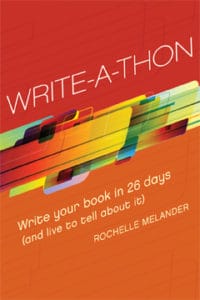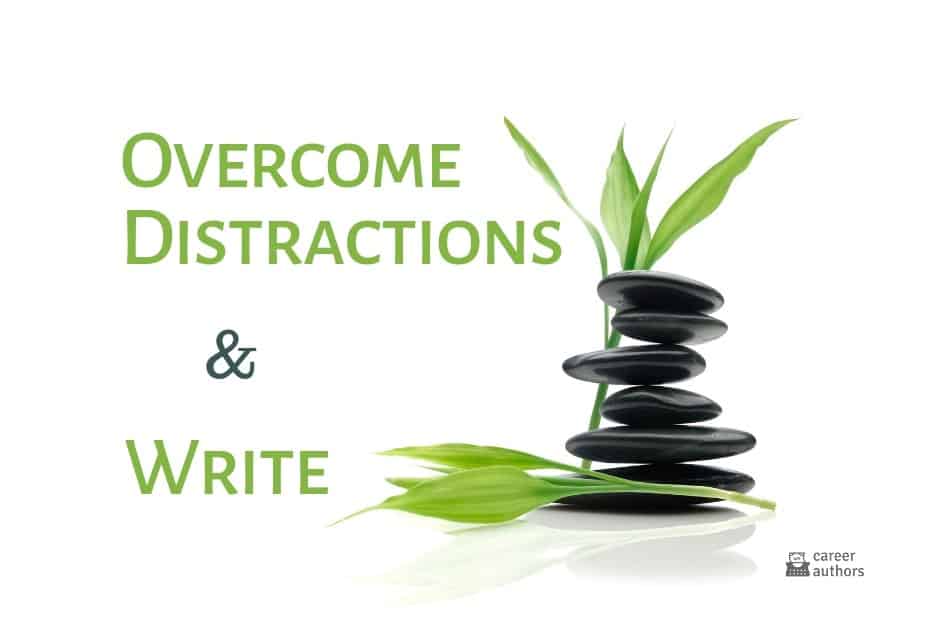What’s getting in the way of your writing?
My clients often come to me because they’re facing down a deadline and can’t seem to get their work done. They’re overwhelmed by all of the other tasks that come with being an author: maintaining a social media platform, marketing their work, and attending to email. They’re distracted, harried, and frustrated. And they need help – now!
According to cognitive psychologist Daniel Levitin, author of An Organized Mind, we’re overloaded with information. Because of technology, we’ve taken on many of the roles that used to be done by others, such as making travel arrangements. And we live in a culture where people expect an immediate response to their phone calls, texts, and emails.
To combat this additional influx of work, many of us multitask. We write a bit, check Facebook, write a bit more, check email, jot down a few sentences about a new project and … well, you get the picture. We call this multitasking but it’s really task switching or rapid toggling. Research shows that task switching—even if we just think about what’s on Facebook or in our email queue—can lower our IQ by as much as ten points. And rapidly switching from one task to another also burns up the nutrients we need to focus, leaving us “exhausted and disoriented.”
So what’s the solution? No solution is perfect, but taking the following steps will help you write more and feel less overwhelmed.
Block out writing time
Block out time in your schedule for writing or other deep work, like character development or plotting. You’ll be most effective if you can do this at your genius time: the time of day when you have the most energy and focus to work on writing. Review your last month of writing sessions and notice: when did writing go especially well? Note everything about the session: when, where, what, and more. This will give you clues to your genius time as well as other factors that impact your writing.
Schedule other tasks
Block out time in your schedule for the rest of your tasks, including checking email, your phone, and social media. It’s helpful if you can cluster together similar tasks—setting aside an hour to do all of your social media or email. I schedule time after lunch and at the end of the day to take care of email and social media. That way, I can write without worrying about all my other tasks—because they are on my schedule.
Commit to single tasking
When you’re busy, it’s tempting to tackle multiple projects at once. This might mean returning texts while answering email or watching a Netflix series while paying bills. But you will be much more effective if you focus on a single task at a time.
- Divide your day into 45-minute chunks and assign a single task to each chunk.
- Turn off anything that might distract you. If you have difficulty doing this, you can purchase a tool to block out distractions while you write. Popular examples include FocusWriter, SelfControl or Omniwriter.
- Keep a notebook or a file open and jot down tasks that threaten to pull your attention from your purpose. Even if you’ve already completed a to-do list, it can be helpful to leave a notebook or file open for random thoughts—especially as you are training your brain to focus.
Take energy-restoring breaks
Taking regular 15-minute breaks can help you be more productive. But the key is to take the right kind of break. Specific kinds of breaks tend to boost energy or encourage breakthrough thinking. Walking in nature, taking short naps, and exercising all increase our energy and restore our ability to pay attention. And repetitive mindless activities like walking, folding laundry, washing dishes, and playing tennis can help us find that “aha” moment.
And if that doesn’t work
If you try all of these tools and still feel distracted, you might need more focused support. Writer’s block, procrastination, and even monkey mind can show up when you’re facing a manuscript problem (I don’t know how to organize this!) or doubting yourself (I’m not good enough to write this.). Talk to a colleague, hire a coach, or consult an editor.
Your turn
What’s your solution for combatting modern distractions and getting work done? Let’s chat on Career Authors Facebook page.

 Write Now! Coach Rochelle Melander is a certified professional coach and the author of eleven books including Write-A-Thon: Write Your Book in 26 Days (And Live to Tell About It) and the forthcoming, Level Up: Quests to Master Mindset, Overcome Procrastination and Increase Productivity. She helps people overcome distractions and writer’s block so they can write more. Visit her online or follow her on Twitter, Instagram, and Facebook.
Write Now! Coach Rochelle Melander is a certified professional coach and the author of eleven books including Write-A-Thon: Write Your Book in 26 Days (And Live to Tell About It) and the forthcoming, Level Up: Quests to Master Mindset, Overcome Procrastination and Increase Productivity. She helps people overcome distractions and writer’s block so they can write more. Visit her online or follow her on Twitter, Instagram, and Facebook.





